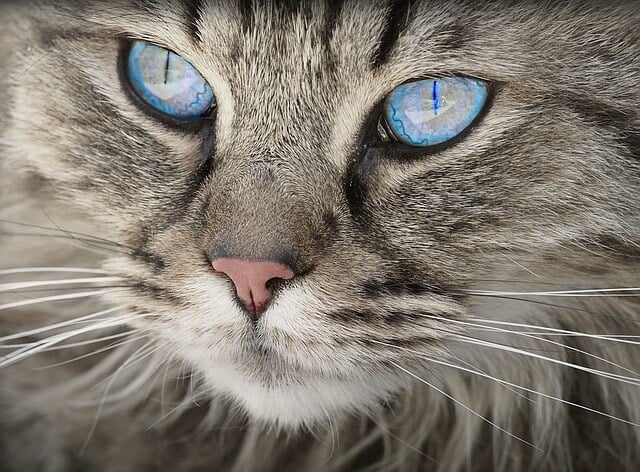Snotty Nosed Cat

In March, I went to a lecture at the Western Veterinary Conference titled “The Snotty Nosed Cat: Is There Ever Any Hope?” By Dr. Lynch. In this talk, Dr. Lynch reviewed the many causes of this condition in cats, which are listed with an * below.
*Acute (fast onset) rhinitis may be viral, bacterial, or fungal – it’s very important to remember how contagious the pet may be and also to test for FeLV/FIV even for indoor cats. We also had a discussion of the most common organisms found and what diagnostics tests are important to perform and which ones may be skipped over. Next Dr. Lynch discussed pros/cons of various antibiotics that can be used and also talked about an antiviral treatment.
*Nasopharyngeal polyps – typically a young cat, cause unknown. Only 2 treatment options: traction vs. osteotomy. (Both of these are surgical options, one less invasive than the other, but also has the potential for re-occurrence.) When surgery is done, secondary Horner’s syndrome is common (a sign of nerve damage).
*Nasal foreign bodies – sudden onset is the key sign, discussed ways to diagnose and treat this condition. Typically it’s a blade of grass that gets caught in the nose and sometimes it can be removed under anesthesia by grasping or flushing it out.
*Nasal tumors – types of cancer commonly encountered in cats, goals of therapy (sometimes all we can do is manage pain and discomfort, other times we can cure the cancer).
*Chronic rhinitis – incurable, frustrating condition. Rule out other causes to reach this diagnosis. Management of flare ups depends on the case and what is occurring in the pet. Here is the only instance where nebulization may be helpful.
I also learned that inhaled prednisone (a steroid) does not penetrate much past the sinuses and therefore not a good treatment option for lower airway disease in pets.
*Nasopharyngeal stenosis – rare. There was a discussion of treatment options (all surgical) – this would be a case for referral to a specialist!
In summary, if your cat has a snotty nose, it is not something that should be ignored! The age of your cat and his/her lifestyle are important in determining what the cause may be. It is also important that we know how suddenly the problem came on. Sometimes the treatment is “simple” and antibiotics are warranted. Other times the diagnostics and treatment may be more complicated. Keep in mind most of the time when we are looking for the cause we need to fully anesthetize the cat in order to visualize the mouth, nose, and palate fully as well as to collect samples if that is warranted. Work with your veterinarian by providing a detailed history of the problem that includes how it has progressed over time. If you need assistance, call our office.
Dr. Amy Hellard
West Chester Veterinary Care
513-942-9282

